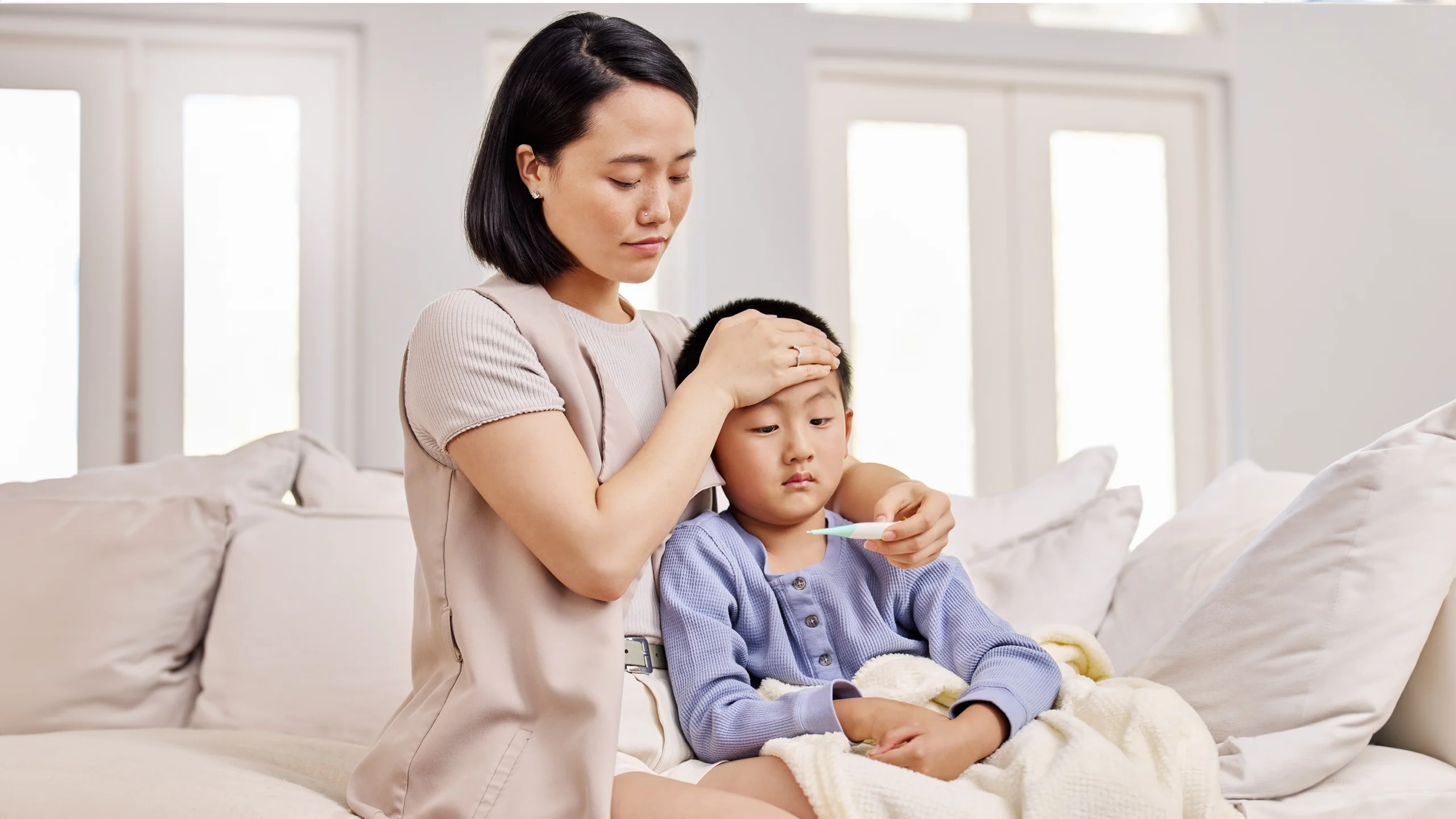When Little Things Go a Long Way: How Parents Can Make The Most Out of “Good” Stress
Here are little things Filipino parents can do add a “good” kind of stress: eustress
Stress, despite the chaos it brings, we rely heavily on it. It’s like that little power-up; the adrenaline floods our limbs and we achieve things that are not humanly impossible. But it does get tiring; when the problem or the source of our stress is gone, what then?
During his talk Longevity Through Science, Spirit and Service, Dr. James Rouse reveals that there’s a different kind of stress that can fuel parents: eustress. “It’s the good kind of stress,” he explains. “It’s the kind of stress that just lowers cortisol levels and helps you become more aware of how amazing you already are.”

Finding Eustress Through Epigenetics
Epigenetics sounds quite fancy–but it simply means, “Living above one’s genes.”
Filipino families have traveled down the rabbit hole of genetics. “May diabetes sa dugo talaga yan ng pamilya. Lolo/ lola mo mayroon,” or “Magpacheck ka for breast cancer–lahat ng babae sa pamilya natamaan” – especially when looking up our family’s history with diseases, it can be crushing to discover that the very thing that may shorten our time with our families is already encoded into our very being.
“It’s genetic.” – That line can feel like a death sentence or at least something that makes us more painfully aware of how short our time is here on earth.
When we don’t have the means to access the technology either that can address those problems, all the more it can be discouraging. Yet, we are no strangers to stories where people have “beat” their diseases. They proved that even genetics cannot carve our futures in stone.
Those who had that brush with death through what many would deem inevitable all seem to have that same “personality change.” Happier, more accepting of whatever happens, spiritual even – many of us are left scratching our heads, “What on earth happened?”
It’s no magic trick; it’s a well-rooted phenomenon in science that many neglect. “Not all stress is bad,” Dr. James explains. “We call the good kind of stress eustress. It looks hard and bad at first, but it actually does a lot of good!”
What are sources of eustress?
Stress? Good? Nobody writes those two words in the same sentence unless the word “isn’t” is in between.
However, some of us have already been creating our sources of eustress without realizing it. Dr. James shares a few sources which some of us may have been doing:
- Keeping the phone farther from the bed or muting work notifications until work hours begin. Nobody gets paid overtime if you clock in hours earlier. That doesn’t earn us a gold star, either. Just more distress or “bad” stress.
- Hugging. “Do it longer than 20 seconds,” Dr. James adds. “As a doctor, it’s my prescription to hug for at least 20 seconds! Besides, what is 20 seconds?”
- 12 seconds of box breathing while lying on the bed.
- 10 second gaze at the sun.
- Walking an average of 8000 steps.
These things may seem simple and little, but they go a long way. We tend to minimalize these in the name of the rush. To pursue productivity – we throw these concepts out, believing that these are a hassle or additional weight on our mental load.
But the truth is, it was never part of our mental load to begin with. It was our body’s to act upon these to survive. That way, we can choose to thrive. Not for our families, but with them.
Finding Eustress or “Good” Stress in Filipino Culture
It may be strange but many of the Filipino virtues that have be weaponized or twisted were once and can still be a source of eustress. Love and loyalty for family has served as a shield for years. It’s why Filipinos, on a global stage, are always the one to first “step on the dance floor,” “perform on stage,” and maybe just greet people with a smile, according to Dr. James.
“Filipinos are absolutely world-class in loving one another,” he xplains. “Social media can make it difficult to see that. We see all these grand things that supposedly can help. But that’s for them. Sometimes, we just have to keep on doing things that makes us who we are.”
He adds that studies have only studied the surface. “This is a kind of science that needs to be lived. Filipinos have been living the science and medicine for years.”
Of course, diet plays a role in providing the energy to build sources of eustress. Magnesium is one of them. Vitamin C is another. Sometimes, all it takes is a sweet potato (kamote) or avocado to get the ball rolling.

How Does Eustress Build or Influence Willpower?
“There are three things that influence willpower,” shares Dr. James Rouse. “Prayer, whole foods, and exercise.”
Filipinos can be quite healthy, once they realize it. An average of 8000 steps is probably minimum for the typical Filipino commuter as they climb up the stairs, take the train, hail a jeep, or even just walk to the point of interest. Spirituality and prayer are deeply ingrained into Filipino culture. It doesn’t have to be Christianity, but the belief in “something bigger than oneself” is, according to Dr. James, a good place to start.
Eating healthy is usually the more complicated part. Whole foods and focusing on protein helps keep the blood sugar down. But it can sound expensive, when in reality, it’s not. Eggs, steamed vegetables — there are so many ways to eat healthy that won’t break the bank. One way to think about it is: medical bills are far more expensive than eating healthy.
So whenever we do suffer from some stress, don’t forget to ask: is it a good kind of stress or a bad one? The good kind fills us with a sense of achievement and fulfillment, not relief. Because when we’re full of eustress or the good kind of stress, our families will find their own sources and become just as resilient or happy.
How Filipino Parents Can Turn Stress Into Eustress
Eustress is known as the “good kind of stress” — the kind that energizes and motivates you instead of draining you. According to Dr. James Rouse, eustress lowers cortisol levels and helps parents feel more alive and capable. Unlike distress, which leads to burnout, eustress inspires growth, purpose, and joy — helping parents thrive instead of just survive.
Simple, mindful habits can turn ordinary moments into sources of eustress: longer hugs (20 seconds!), morning sun gazes, deep breathing, and unplugging before bed. These small acts help the body recover naturally while improving emotional balance — a gentle reminder that self-care doesn’t have to be complicated or costly.
Yes. Dr. James Rouse explains that prayer, whole foods, and exercise strengthen willpower and promote eustress. For Filipino families, daily walking, spirituality, and nutritious meals — like kamote, eggs, and vegetables — all support both physical and mental resilience. These build the foundation for better focus, emotional strength, and a calmer home life.
Filipino values like malasakit, bayanihan, and lambing can turn into natural sources of eustress. Love for family, laughter, and faith have long helped Filipinos handle challenges with grace. As Dr. Rouse notes, “Filipinos are world-class in loving one another,” showing that emotional connection and optimism are part of our wellness DNA.
Try turning family routines into eustress moments: take evening walks together, share hugs that last more than a few seconds, prepare simple healthy meals, and unplug for a few minutes each day. When parents create an environment of positive energy, children mirror that mindset — learning that stress can be a source of strength, not struggle.
More about stress and mental health?
Working Parents: “It’s okay to feel burned out.”
How Does Knowing Your Stress Language Help?
How We Develop Stress Responses: A Family Perspective









